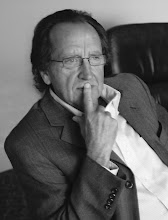When I was a small boy, people in the congregation my father was serving would invite us over to dinner. My mother upon seeing their house would sometimes remark what a lovely house it was. On more rare occasions she would remark about how lovely their home was. As I grew older I asked my mother why she used the two words-house and home-at different times. Her response was that not every lovely house is a lovely home. Homes refer to the occupants. A house is simply an abode.
Several years ago I was invited by a family in my congregation to bless their new house. When they invited me they indicated that having a blessing on their house would help establish their house "as a home where God is celebrated." These were not people who you would call overly religious, but they were faithful and an active part of our faith community. It was the only time anyone ever invited me to bless their house (By the way I still do house blessings in case you're interested).
We have discovered during this Great Recession that our houses are not the valuable investments they once were. In fact what may be a lesson from the devaluation of our houses is to look at them as places where we can build faithful families. For too long too many of us have looked for the house that would impress and not been as concerned about the families in them.
In this same vein, my father always used the words church and church building separately. He would refer to his study being in the church building. If he was going to his study he would say he was going to the church building. The church for him was the body of Christ. It was so much more than the building. I have been trying to do the same over the last several years-church building when I go to the facility and my study instead of office-my home versus my house. Language can be a powerful way of helping us change, not only the way we think, but also the way we live.
Prayer
Gracious God bless this day the house where I live and the home within. Let my home be decorated by your love and grace. When there is strife help me to do what I can that your Spirit might bring healing. In the name of Christ. Amen.
C. Mac Hamon, Senior Pastor
Castleton United Methodist Church
Indianapolis, Indiana
